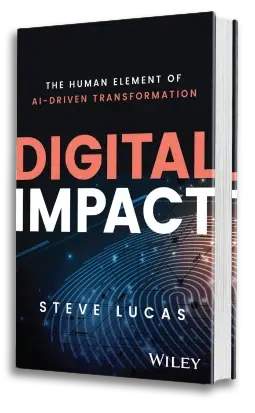As businesses rush to adopt artificial intelligence, a sobering message from Boomi CEO and chairman Steve Lucas cuts through the hype: outdated digital infrastructures are sabotaging AI success. In his new book, Digital Impact: The Human Element of AI-Driven Transformation (Wiley), released Monday, Lucas argues that most organizations are pouring millions into AI while struggling under decades-old systems, fragmented data, and disconnected apps.
“AI is only as smart as the systems and data it runs on,” Lucas warns, emphasizing that digital sprawl and poor integration are the root causes of stalled AI initiatives. Drawing from his leadership roles at Adobe, SAP, and Marketo, along with insights from top executives and CIOs, Lucas outlines a bold roadmap for reimagining how enterprises approach transformation.
At the heart of his framework is the Digital Impact Mission—a leadership-first strategy for unifying technology, cleaning up data, and building agile, human-centric systems. His call to action? CEOs must lead from the front, rethinking outdated SaaS models and designing for collaboration between humans and machines.
The book offers a practical lens on AI’s disruption across industries, featuring real-world case studies from global banks, logistics giants, and government agencies. These organizations, Lucas reveals, are moving beyond flashy AI pilots to building adaptive, AI-ready infrastructures.
Contributions from tech and business leaders—including Deloitte’s former Global CIO Larry Quinlan, ex-Ford CEO Mark Fields, and Red Hat’s Paul Cormier—underscore a common theme: AI transformation isn’t about tools, it’s about tearing down digital silos and rebuilding with purpose.
In a world increasingly defined by AI, Digital Impact serves as a timely blueprint for leaders ready to turn digital chaos into long-term, scalable innovation.







